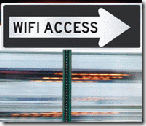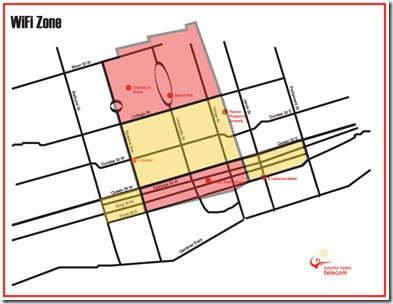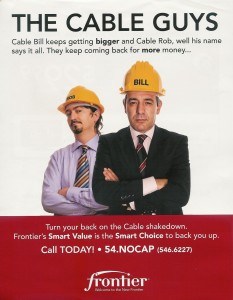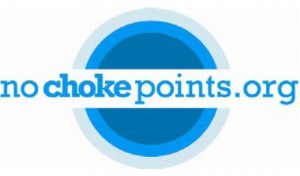 Cogeco, following in the footsteps of Rogers, Canada’s largest cable operator, has mailed letters home to residential subscribers informing them that their new Internet Overcharging scheme and fees are real and will apply to broadband accounts that exceed their arbitrary usage allowances. Since the spring, Cogeco has been showing the Internet Overcharges on subscriber’s bills, but not actually billing them. That is set to change, however, and many residents in Ontario and Quebec are quite upset.
Cogeco, following in the footsteps of Rogers, Canada’s largest cable operator, has mailed letters home to residential subscribers informing them that their new Internet Overcharging scheme and fees are real and will apply to broadband accounts that exceed their arbitrary usage allowances. Since the spring, Cogeco has been showing the Internet Overcharges on subscriber’s bills, but not actually billing them. That is set to change, however, and many residents in Ontario and Quebec are quite upset.
“Cogeco can bite me. As soon as I manage to scrounge up a second DSL modem I’m gone.”
“I’m waiting for the Cogeco trolls to come out of the woodwork so they can claim how competitive and affordable that plan is.”
“I am starting to hate Cogeco very much, I am tempted to cancel my internet and my digital TV service for spite.”
“Vote with your wallets guys, I did. And now with the increase I’m going to cancel my HD access and return the receiver — enough is enough. I’ll be down to Basic Digital Cable and if they keep increasing prices, that will go too.”
“Ditto! Price increase is THE LAST STRAW for this 10 year + customer!”
Cogeco’s limits also come with overlimit fees that are particularly harsh on casual and power users. In Canada, many overlimit fees are currently capped at a maximum amount, and do not continue to increase beyond that maximum. Lite users face a $2.50/GB overlimit fee (maximum $30), despite representing almost no usage impact on Cogeco’s network, and “Pro” users face a $1/GB overlimit fee, but face a maximum of $50 in overlimit penalties, despite paying a much higher up-front monthly subscription fee.
In a nutshell,
- Lite – 10GB/mo bitcap – $2.50 per GB over to a maximum of $30
- Lite Plus – 20GB/mo bitcap – $2.00 per GB over to a maximum of $30
- Standard – 60GB/mo bitcap – $1.50 per GB over to a maximum of $30
- Pro – 100GB/mo bitcap – $1.00 per GB over to a maximum of $50
Broadband providers in the United States always promise that if they are permitted to introduce Internet Overcharging schemes, it will be “fairer” for all customers, because “heavy users should pay more for what lighter users don’t do.” Providers also typically allude to network improvements and no widespread price increases.
But as Canadians have already discovered, big telecommunications firms operating with virtual duopolies can have their cake and eat it too.
Cogeco customers now face the prospects of classic Internet Overcharging — usage allowances, overlimit fees and penalties, and “fair pricing,” but after the company implemented these schemes, consumers got a reminder of what cable operators like Cogeco are also capable of — widespread rate hiking.
New Rates: We’re improving our services so you’ll continue the best today and in the future (effective July 17, 2009):
Internet Pricing
Standard – With TV or Phone…..current rate: $44.95……new rate: $45.95
Standard – Standalone……..current rate: $52.95………..new rate: $54.95
Pro – With TV or Phone……..current rate: $69.95………..new rate: $76.95
Pro – Standalone……………..current rate: $74.95………..new rate: $81.95
Internet Overchargers like Cogeco consider “fair share” to mean giving an equal amount of dollars from yourself to them. That’s fair, right?
It’s simply more evidence to this universal truth, a fact of life every North American should already know:
Cable bills never decrease, they only increase, unless you drop services.
When a cable company tells you they have a plan to guarantee “fairness,” be sure to remember what represents “fairness” to you may mean something entirely different to them.


 Subscribe
Subscribe

 In the last two installments I covered the North Carolina legislators that had a hand in HB1252/S1004, legislation that would have severely curtailed municipal broadband projects in this state, and how they were involved in bringing the bills to the floor.
In the last two installments I covered the North Carolina legislators that had a hand in HB1252/S1004, legislation that would have severely curtailed municipal broadband projects in this state, and how they were involved in bringing the bills to the floor.
 The NoChokePoints Coalition has a point. They are a coalition of public interest groups and providers like British Telecom and Sprint-Nextel that are upset with monopolistic pricing for high speed broadband lines. Verizon and AT&T “control the broadband lines of almost every business in the United States” the coalition states, and “generates a profit margin of more than 100% for the controlling phone companies.”
The NoChokePoints Coalition has a point. They are a coalition of public interest groups and providers like British Telecom and Sprint-Nextel that are upset with monopolistic pricing for high speed broadband lines. Verizon and AT&T “control the broadband lines of almost every business in the United States” the coalition states, and “generates a profit margin of more than 100% for the controlling phone companies.”